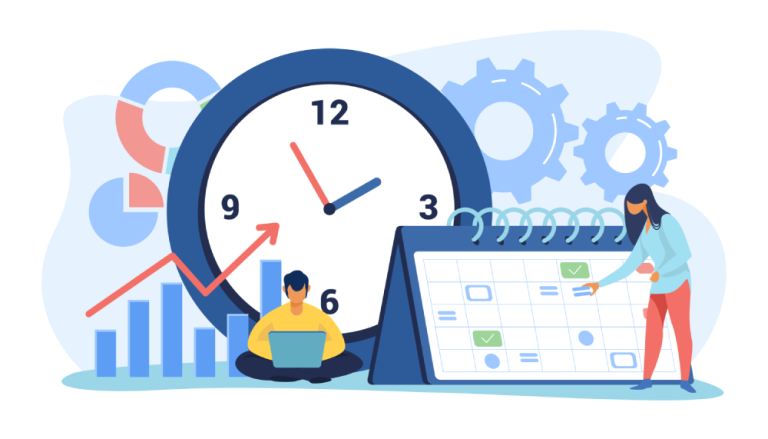Building Resilience
Imagine you are the boxer in the ring. You have been hit hard by the opponent. You are groggy, on the floor and the referee has started counting. You have got to get up before he counts 10, survive this round and come back after a brief rest for subsequent rounds to knock out your opponent. If you can’t get up – game over.
In real life, crisis is your opponent. Having weathered a midlife crisis in my late-thirties, I thought I will share some thoughts on building resilience.
First and foremost crisis hits you when you are most unprepared. Like in a 20-20 cricket match your team has 6 balls to score 6 runs with 5 wickets in hand but the opponent bowler scores a hattrick with first 3 balls followed by a dot ball. Panic sets in as your team is left with just 2 wickets and 2 balls to score 6 runs. A crisis suddenly exposes all those vulnerabilities which you never thought you had.
Simply put resilience is ability to bounce back from setbacks (whether the setback was man made or not). Some setbacks like death of a loved one takes time to recover. But for setbacks like loss of job, business bankruptcy, ill health, being cheated out of your life savings, losing your precious assets due to natural calamities, etc., we are unlikely to get a wait-out time. So how does one build resilience and when to build it?
It’s a no brainer that you have to build resilience during good times. Bad times are too late. When the crisis hits you, the reptilian brain takes over. It’s either flee, fight or freeze and you do not even know which one to choose among the three. Danger seems to lurk in every single corner that you eye. Everyone has read about crisis making one stronger but when you are faced with one, you are doubtful, if you can ever scrape through. It is important to remember that whatever you did during good times to build resilience can help you navigate the bad times. Therefore, never assume good times will last forever. In the business world, building resilience is called risk management. It works for people like you and me as well.
Here are 4 things you could consider doing to build resilience.
1. Improve your decision making skills : If your goal is to avoid or prevent setbacks this is a good one to start with, considering that a large number of setbacks are self-goals caused by bad decisions. It is said that good decisions come from experience and experiences come from bad decisions. There is a way to avoid this vicious circle by learning and practicing at least 3 mental models. (To explore more click on the links in each model.)

- Make decisions within your Circle of Competence. The most important thing about this mental model is to understand where your competence starts and ends. In general we tend to overestimate what we know. Wisdom is not just about knowing more. It is also about understanding the limits of what you know. Trouble starts when decisions are made in areas of assumed competence. It could be major decisions or series of smaller decisions gone wrong that land you into a crisis. Before you make major decisions that impact your life (choice of course for higher education, job change, relocation, marriage, making investments, becoming an entrepreneur, etc) ask yourself if you know all that you need to know before making a decision. Consult people who really know when decisions have to be made in areas outside of your competence.
- When it is not possible to know all that you need to know and also not possible to consult an expert (too expensive or nobody knows) try Thought Experiments. It is a well-defined, well-structured way of asking hypothetical questions that employ a kind of reasoning – “what might happen if ….” A key example is said to be Galileo’s reasoning that falling objects must fall at the same rate regardless of their masses. It is not day dreaming. It is a logical and disciplined approach that helps us discover new information by rearranging or reorganising already known data. You can identify fault lines in the logic or arguments that you applied for making decisions or solving problems when everything cannot be known in advance.
- The third mental model that is immensely useful is Second-Order Thinking. We find often that when we solve one problem, the solution unintentionally creates another one that’s even worse. US encouraged rebels in Afghanistan to fight Russia. Eventually rebels became more powerful and US cannot solve this new problem even after decades and spending billions of dollars. India imposed lock-downs to prevent spread of Corona Virus. It resulted in panic stricken migrant labourers walking home in large numbers on highways not wanting to die of hunger. This new situation increased the risk of spread of virus (to rural areas where healthcare services are poor) while creating additional problems of their safe transportation back home.
Simply put Second-Order Thinking is asking “Then What” beyond the first and immediate consequences of a decision or solution. In the business world we call it scenario planning. It becomes even more powerful when you attach probabilities to the scenarios likely to unfold. Helps you think of potential dangers, pitfalls and possible defences. In all likelihood your final decision or solution will be quite different from the first one that initially seemed perfect.
“Failing to consider second- and third-order consequences is the cause of a lot of painfully bad decisions and is especially deadly when the first inferior option confirms your biases. Never seize the first available option, no matter how good it seems, before you have you’ve asked questions and explored.” Ray Dalio
Second-order thinking overcomes the dangers of first level thinking of being simplistic, biased and superficial. This is one particular quality that separates men from boys. If you want to get smart, start practicing this model.
Learn and practice mental models to train your mind to think better. As Albert Einstein said “Education is not the learning of facts but the training of mind to think”.
2. Practice adaptive skills: Wonder why Cockroaches have been around for millions of years when Dinosaurs have become extinct? It is not the strongest that survive but the most adaptable. Even if you are one of the best cabin crew in your airline company if the entire Industry is grounded there is not much you can do. You will have to adapt to the new situation. With your brain on reptilian mode after the crisis has hit, adapting is not easy unless you have trained your mind before. This is about deliberately discarding old habits and forming new habits, about unlearning and new learning that are crucial to adopt to change. Breaking set routines and well-set habits helps the mind to become more flexible while bringing in new experiences and learnings.
Practice hunger by fasting once a month so that when food is not available (even when you have the money) your mind and body can adjust more easily. Eat two meals a day for a week for a few weeks in a year to practice intermittent fasting. Experiment with cooking simple stuff. Give paid time off to your domestic help and get used to some household chores. Some of these help us to shed excess fat and improve fitness. When the crisis hits, “you have been there and done that” and it is just a matter of repeating what you have already done.
When your primary skills fail to bring in the money, what other skills do you have that can be monetised so that you live with dignity and self-respect? Spend the next weekend to build a secondary skill out of your hobby – Writing, Cooking, Photography, Video editing, Fine arts, Fitness instructor, Dancing, Teaching, Web page design, whatever that you can monetise even if part time. It’s fun during the weekend and can come handy during a crisis.
3. Build a war chest: We are increasingly becoming an experience economy globally. Asset building is old fashioned and left to the top 1% of the world population. While every business is still aiming to get an increased share of your wallet, the focus has shifted to experience. Now our holidays have to be more exotic. We are glued to our networked video games or streamed movies and soap operas that frequently need expensive upgrades of both hardware and software. We tend to eat out more often searching for new or different (and expensive) cuisines. However, what is needed is moderation. A balance between accumulating assets vs experience.
Ideally you must have cash or assets that can be quickly converted into cash that will see you through for 12 months. If that’s too hard at least aim for 6 month’s reserve. Include your EMI’s, children education, medical and living expenses per month when building a reserve. In addition, invest in a good medical insurance policy. Start saving early into a pension fund. It gives you the added advantage of retiring early once the accumulated savings reach a level that protects your standard of living. Your cash reserves, pension funds and insurance make up your war chest and therefore, deserve more priority and respect before experience spending.
4. An Active Network that you can count on: There are some recent data points being made that Facebook is falling out of favour with the younger generation but its statistics are still mind boggling. It is adding 5 new profiles every second. Average number of connections per individual is 338. People spend on an average 153 minutes per day on social networking. Yet with all this one question you have to ask yourself – Do I have 3 friends that I can call during midnight and confident that they will respond and help me? Real network is not about the number of people. As Denise Martin said True friendship is like phosphorescence. It glows best when the world around you goes dark.When it comes to people that you can count on to help you during a crisis, you will discover that it’s far worse than 80:20 principle.
Hitting a like button is easy. But it is increasingly becoming harder to open wallets and sacrifice time for the sake of others. The reason is plain and simple. Quality of your network is fully dependent on what you give. Most people join a network to take what they want. Just taking and not giving anything makes you selfish. People will be polite but nobody will help you. Cardinal rule for leveraging networks is “Give and Take” with “Give” coming first. If you have given something, at least a few others who have benefitted will show some degree of commitment to help you. And most important – giving grows your circle of influence. A large circle of influence not only helps you thrive during ordinary times but also a good insurance to survive a crisis. Adam Grant has authored an excellent book titled “Give and Take” on this topic on how helping others drives our success.
Ask yourself – What you have given to your networks in the last 6 months? Does your network include any mentors? Has your circle of influence grown over the last 1-2 years? It does not matter whether you are an extravert or an introvert – key thing is to have 3-5 people that you can count on when you need them most.
I mentioned early about weathering a mid-life crisis. To be honest everything mentioned here is hindsight except that I was least prepared. Conversations with a few friends in the midst of ongoing Corona crisis made me relive those days. I could distil out a few aspects of how I survived, got back on my feet and finally thrived to a reasonable degree of success in my professional and personal life. Building resilience is hard work. But, believe me, managing a crisis is worse. Apply mental models to make the right decisions, deliberately practice adaptive skills, build a war chest and be a part of a mutually beneficial thriving network. You become more capable of managing any situation personally or professionally.



